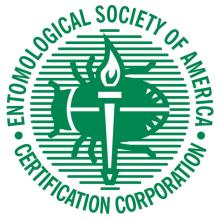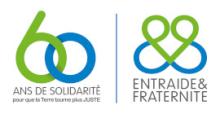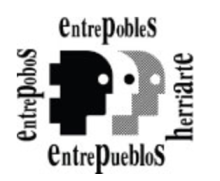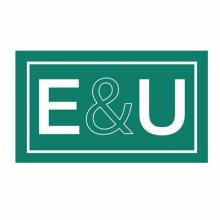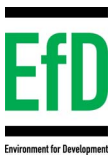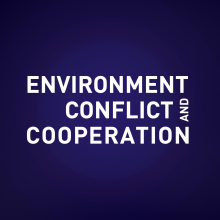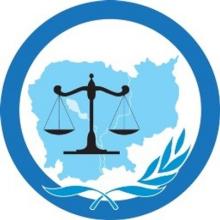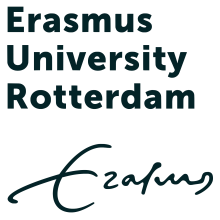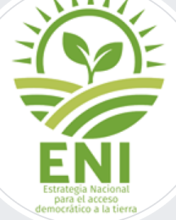The Land Library includes resources from more than 1,900 national and international information providers. Learn more about the organizations and institutions using the Land Portal to share their open-access research, data and stories.
Entomological Society of America
The Entomological Society of America (ESA) is the largest organization in the world serving the professional and scientific needs of entomologists and individuals in related disciplines. Founded in 1889, ESA has over 6,000 members affiliated with educational institutions, health agencies, private industry, and government. Members are researchers, teachers, extension service personnel, administrators, marketing representatives, research technicians, consultants, students, pest management professionals, and hobbyists.
ESA is a 501(c)3 not-for-profit professional society governed by a board comprised of members. The headquarters office is located in Annapolis, Maryland.
ESA publishes six internationally acclaimed journals that provide unsurpassed coverage of the broad science of entomology, as well as American Entomologist, a colorful, quarterly magazine.
Entraide et Fraternité
Créée en 1961, Entraide et Fraternité est une ONG catholique belge de coopération au développement et de solidarité internationale, qui vise à réduire les inégalités et lutter contre les injustices sociales.
Entraide et Fraternité soutient dans cet objectif des organisations locales en Afrique, en Amérique latine et Caraïbes et en Asie. Entraide et Fraternité travaille en partenariat avec ces organisations, dans une perspective de long terme et sur base d’un véritable dialogue, sur trois champs d’action majeurs :
![]() le droit à l’alimentation, notamment à travers le soutien à l’agriculture paysanne dans une optique de souveraineté alimentaire,
le droit à l’alimentation, notamment à travers le soutien à l’agriculture paysanne dans une optique de souveraineté alimentaire, ![]() les droits des enfants, à travers le renforcement de leur protection et de leur participation au sein de leur famille et communautés,
les droits des enfants, à travers le renforcement de leur protection et de leur participation au sein de leur famille et communautés, ![]() les droits civils et politiques, à travers la participation de groupes marginalisés à la défense de leurs droits.
les droits civils et politiques, à travers la participation de groupes marginalisés à la défense de leurs droits.
En Belgique, Entraide et Fraternité (1) forme le public belge, et notamment les communautés chrétiennes et les jeunes via des animations dans les écoles, à l’analyse et à la réflexion critique sur les mécanismes qui régissent les relations Nord-Sud, pour arriver à un changement individuel et sociétal ; (2) renforce, par des actions et analyses politiques, le courant de proposition d’alternatives et de contestation des structures et mécanismes injustes.
Entre Pueblos
Entrepueblos/Entrepobles/Entrepobos/Herriarte es una asociación independiente y laica, constituida en 1988 por los Comités de Solidaridad con América Latina, que a través de la cooperación internacional solidaria, la sensibilización, la educación emancipatoria, el apoyo a los movimientos sociales alternativos y la incidencia social y política, pretende intervenir en el proceso de transformación socialpara permitir la satisfacción para cualquier persona, tanto mujeres como hombres, y en cualquier lugar del mundo, de los derechos humanos, políticos, económicos, sociales, medioambientales y culturales. En esta labor Entrepueblos considera necesario centrar especialmente su trabajo en aquellos sectores y colectivos sociales más excluidos, discriminados y empobrecidos, desde una perspectiva feminista y de ecologismo social.
Environment and History
Environment and History is an interdisciplinary journal which aims to bring scholars in the humanities and biological sciences closer together, with the deliberate intention of constructing long and well-founded perspectives on present day environmental problems.
Environment and Urbanization
Environment for Development
The Environment for Development (EfD) Initiative is a capacity building program in environmental economics focusing on research, policy interaction, and academic programs. The overall objective of EfD is to support poverty alleviation and sustainable development by building environmental economics capacity in policy making processes.
EfD was established in 2007 by the Environmental Economics Unit, University of Gothenburg, Sweden. The EfD network now has centers hosted by universities or academic institutions in Central America, Chile, China, Ethiopia, Kenya, South Africa, Sweden, Tanzania , USA, India, Vietnam and Colombia. The program also includes a full PhD program in Global Change and Climate Economics given at the University of Gothenburg, and four Specialization courses in Environmental and Climate Economics, held every other year.
The EfD Secretariat, the administrative hub and the main support function of the EfD Initiative, is hosted by the center in Sweden. The secretariat serves the EfD centers with research management, central communication functions, core support management and administration, and acts as an incubator for policy interaction issues to share experiences between the EfD centers and other relevant actors.
Environment, Conflict and Cooperation Platform
This website offers a platform for exchange on environment, conflict, and cooperation (ECC). It aims to foster sustainable peace and development by gathering and disseminating knowledge. It also seeks to create networks among stakeholders in the global environment, climate, foreign policy and security communities.
Environmental aspects are increasingly recognised as important elements of sustainable peace: The UN and EU have initiated discussions on the potential impacts of climate change on the security and stability of states, and environmental security has become a central issue in foreign and security strategy planning. This is also illustrated by the generous support of the German Federal Foreign Office for this platform.
This website approaches the ECC topics from two main angles:
1) Our focus on Climate Diplomacy explores the foreign policy dimension of climate change and climate policy, including different regional and thematic approaches to it. The website also seeks to provide arguments for enhanced international cooperation and diplomatic engagement for climate in multi- and bilateral fora.
2) Our second core theme revolves around approaches to build resilience to compound climate-fragility risks. This platform section presents core conclusions of the report A New Climate for Peace, commissioned and welcomed by the G7 foreign ministers. The page’s Resilience Compass blog provides a space to share analysis, research and emerging thinking on climate change impacts and climate change responses in fragile states and on the actions necessary to build resilience and stability.
Environment, Development and Sustainability
Environment, Development and Sustainability is an international, multidisciplinary journal covering all aspects of the environmental impacts of socio-economic development. Concerned with the complex interactions between development and environment, its purpose is to seek ways and means for achieving sustainability in all human activities aimed at such development. Coverage includes interactions among society, development and environment, and their implications for sustainable development; technical, economic, ethical and philosophical aspects of sustainable development; local, regional and global sustainability and their practical implementation; development and application of indicators of sustainability; development, verification, implementation and monitoring of policies for sustainable development; sustainable use of land, water, energy and biological resources in development; impacts of agriculture and forestry activities on soil and aquatic ecosystems and biodiversity, and much more. See Aims and Scope for more details.
- International in scope, multidisciplinary in approach
- Covers a broad range of activities, methods and policy implications of sustainability
- 100% of authors who answered a survey reported that they would definitely publish or probably publish in the journal again
- International in scope, multidisciplinary in approach
- Covers a broad range of activities, methods and policy implications of sustainability
- Chief Editor: Luc Hens, Human Ecology Department, Free University Brussels, Belgium
- 100% of authors who answered a survey reported that they would definitely publish or probably publish in the journal again
Environmental Investigation Agency
EIA’s investigations are a trademark of our work around the world, but we tackle environmental crime and defend the natural world strategically, operating in a number of different ways.
Our findings are combined with scientific documentation and representation at international conventions, creating the hard-hitting campaigns which have earned us a global reputation.
Investigations
Diligent, carefully planned undercover investigations are at the heart of EIA’s work, going out to the frontlines of environmental crime and returning with the credible intelligence and persuasive imagery necessary to confirm the findings of our preliminary research and tip-offs in the field.
The more complex and potentially dangerous cases see investigators setting up false front companies and well-researched fake identities, allowing them to infiltrate potentially criminal organisations and get close to the key individuals suspected of involvement.
Campaigning
The evidence sourced in the field is used by EIA to raise awareness and to advocate meaningful change and policy reforms, lobbying those in power and producing authoritative reports and compelling short films.
We also identify and advocate solutions to the problems we expose, a major focus of which is the role played by consumer demand for products harming the environment, from illegal logging to supermarket refrigeration.
Cooperation
EIA works closely with a number of other organisations, developing close partnerships with local NGOs around the world as well as engaging with wildlife and customs enforcement agencies at international and national levels; for example, we provide hard intelligence to Interpol and the World Customs Organisation, while our bespoke training films on illegal trades are used by enforcement agencies worldwide.
Environmental Law Alliance Worldwide
The Environmental Law Alliance Worldwide (ELAW) helps communities speak out for clean air, clean water, and a healthy planet. We are a global alliance of attorneys, scientists and other advocates collaborating across borders to promote grassroots efforts to build a sustainable, just future.
Environmental Peacebuilding
Environmental peacebuilding integrates natural resource management in conflict prevention, mitigation, resolution, and recovery to build resilience in communities affected by conflict. Join our new Environmental Peacebuilding Association comprising researchers, practitioners, and decision makers to share experiences and lessons from managing natural resources in conflict-affected settings, access new research on the topic, and participate in events to support the growing network of professionals active in environmental peacebuilding.
Challenges Presented by Natural Resources and Conflict
Most armed conflicts occur in developing countries where people depend substantially on natural resources for subsistence farming and livelihoods. Natural resources are often intertwined with the conflict narrative, with grievances over natural resources and their revenues contributing to the onset of conflict, revenues from natural resources financing conflict, and combatants targeting natural resources and the environment. And peace following resource-related conflicts is fragile: countries with past resource-related conflicts are more likely to relapse, and to do so twice as quickly.
Environmental Peacebuilding
Natural resources are one of a country’s most critical assets for peacebuilding. Land, forests, minerals, oil, water, and other resources are the foundations for rebuilding livelihoods and national economies. They provide jobs for reintegrating former combatants. And efforts to address corruption and improve governance often focus on natural resources and their revenues. Environmental peacebuilding incorporates natural resource management into peacebuilding activities and strategies to support security, humanitarian, and development objectives.
Catalyzing Research and Action
From 2008 to present, the Environmental Law Institute (ELI), the United Nations Environment Programme (UNEP), the University of Tokyo, and McGill University have led a five-year global research initiative to analyze experiences in post-conflict peacebuilding and natural resource management, identify lessons, and raise awareness of those lessons among practitioners, researchers, and decision makers. The initiative is producing six edited books (published by Earthscan) that include over 150 case studies and other analyses from more than 60 conflict-affected countries and territories, written by 225 researchers, practitioners, and decision makers from around the world. A seventh overarching book (published by Cambridge University Press) synthesizes the findings across resources, peacebuilding activities, and countries. Building on this unprecedented body of research, we are converting learning into action, while we continue to examine approaches to more effectively manage resources to support peacebuilding.
Environmental Protection Agency Ghana
The Environmental Protection Agency is the leading public body for protecting and improving the environment in Ghana.
It's our job to make sure that air, land and water are looked after by everyone in today's society, so that tomorrow's generations inherit a cleaner, healthier world. We have more than 40 years of history behind us. We have offices across Ghana working on and carrying out Government policy, inspecting and regulating businesses and reacting when there is an emergency such as a pollution incident. A 13-member board of directors, appointed by the President of Ghana, supervises our operations.
However, the management of our day-to-day operations is directly under an Executive Director and three divisional heads (Deputy Executive Directors).
Environmental Research Letters
Environmental Research Letters covers all of environmental science, providing a coherent and integrated approach including research articles, perspectives and review articles.
All content is published on an open access basis under a CC BY licence and is free to readers, funded by an article publication charge.
Environmental Systems Research Institute
We are the global market leader in GIS, helping customers get results since 1969.
Esri was founded to help solve some of the world’s most difficult problems. We do so by supporting our users’ important work with a commitment to science, sustainability, community, education, research, and positive change.
Today, Esri software is deployed in more than 350,000 organizations, including the world’s largest cities and most national governments.
We’re committed to serving our users and customers. We seek a deep understanding of their challenges and opportunities, and work together toward viable solutions.
We spend more than 30% of our annual revenue on R&D. That’s how much we believe in advancing and shaping the future of geographic information systems (GIS).
Equator Initiative
What we do
The Equator Initiative brings together the United Nations, governments, civil society, businesses and grassroots organizations to recognize and advance local sustainable development solutions for people, nature and resilient communities.
We seek to
-
Recognize the success of local and indigenous initiatives
-
Create opportunities and platforms to share knowledge and good practice
-
Inform policy to foster an enabling environment for local and indigenous community action
-
Develop the capacity of local and indigenous initiatives to scale-up their impact.
How we do it
The Equator Initiative accomplishes its goals through three action areas:
- The Equator Prize is awarded biennially to recognize and advance local sustainable development solutions for people, nature and resilient communities. As local and indigenous groups across the world chart a path towards sustainable development, the Equator Prize shines a spotlight on their efforts by honoring them on an international stage.
- Equator Dialogues are an ongoing series of community-driven meetings and exchanges, held in conjunction with related international forums. Equator Dialogues provide opportunities for people to share experiences, develop capacities and influence policy.
- Equator Knowledge is a research, documentation and learning program focused on local best practice in sustainable development. The Equator Initiative works with partners to identify, document, and analyze the success factors of local best practice, and to catalyze ongoing peer-to-peer learning, knowledge exchange and replication of best practice.
Equator Principles
The Equator Principles (EPs) is a risk management framework, adopted by financial institutions, for determining, assessing and managing environmental and social risk in projects and is primarily intended to provide a minimum standard for due diligence and monitoring to support responsible risk decision-making.
Equitable Cambodia
Equitable Cambodia was formed out of the localization of the international solidarity organization Bridges Across Borders Cambodia (BABC) and was registered as a Cambodian national non-governmental organization in March 2012.
BABC worked to support people's action for inclusive development, social justice and human rights in Cambodia from 2003-2012. During that time, it successfully fought poverty and deprivation through the establishment of child protection facilities, formal and non-formal education, leadership and harm reduction programs from which over 6000 children and youth benefited, and through community-based development initiatives that increased the food security and improved the health and well-being of over 5000 poor and vulnerable Cambodians.
BABC was a leading advocate of land and housing rights in Cambodia. Through media and legal advocacy, coalition building, policy research and lobbying at the national and international level, BABC helped to elevate the issue of forced evictions and land-grabbing in Cambodia and made international development agencies more accountable and responsive to this pervasive human rights problem.
BABC was also engaged in extensive efforts to support human rights defenders and expand access to justice through the development and implementation of community empowerment and legal awareness programs. BABC developed ground-breaking popular education curriculum on international human rights law, domestic law, and strategies that communities can employ to defend their rights in the face of forced displacement. It trained grassroots facilitators from fifteen Cambodian provinces and municipalities and supported them to use these materials to raise awareness and empower thousands of people in threatened communities across the country.
Equitable Cambodia is now carrying on this work under Cambodian leadership. Equitable Cambodia is governed by a Board of Directors and managed on a day-to-day basis by an Executive Committee, comprised of the senior management of the organization. The Executive Committee is coordinated by Mr. Eang Vuthy, who serves as the legal representative of the organization.
The overall goal of Equitable Cambodia is to transform the national development model into one that respects, protects and progressively fulfills the human rights of the Cambodian people.
Equitable Cambodia's strategic objectives for 2010-2012 are:
- Global awareness is raised and international solidarity is fostered around the pressing issues facing poor and marginalized Cambodian communities.
- Poor and marginalized communities are motivated, organized and effectively supported to overcome their common problems and reach their full potential.
- Cambodians are more informed and equipped to defend their rights and advocate for equitable development and accountability.
- The government, development partners and private sector improve respect for land, housing and natural resource rights.
Erasmus University Rotterdam
Erasmus University Rotterdam (Dutch: Erasmus Universiteit Rotterdam) is a public university located in Rotterdam, Netherlands. The university is named after Desiderius Erasmus Roterodamus, a 15th-century humanist and theologian.
Escuela Nacional de Antropología e Historia México
MISIÓN
Formar y actualizar profesionales en los niveles de licenciatura, maestría y doctorado, competentes para realizar investigación antropológica e histórica original, capaces de generar y aplicar el conocimiento sobre temas de relevancia científica, desarrollo, pertinencia e impacto social, a partir del compromiso social como criterio ordenador y de una actitud que reconoce la diversidad. Así como, actualizar y difundir el conocimiento de las disciplinas antropológicas e históricas, tomando en cuenta las funciones que ellas puedan cumplir en diferentes grupos de la sociedad.
VISIÓN
La Escuela Nacional de Antropología e Historia está posicionada como una de las instituciones en docencia e investigación más reconocidas a nivel nacional e internacional, en materia de antropología e historia, a partir de programas de alta calidad en la formación de profesionales con niveles competitivos y de vanguardia en el campo de la investigación en las distintas disciplinas de su competencia. Con ello, la ENAH busca colaborar en el desempeño de las tareas sustantivas de investigar, conservar, proteger y difundir el conocimiento sobre el patrimonio cultural de México, que competen por ley al INAH.
Así, se responder de manera eficiente a las necesidades y beneficio de la sociedad en general y del propio INAH que en su Programa de Trabajo 2007-2012 afirma que "la investigación y la formación de profesionales es el centro de nuestro quehacer: de él emanan las nuevas políticas públicas de protección y difusión de nuestro legado, y es el semillero indispensable para el recambio generacional en las tareas sustantivas que nos han encomendado".
Espaço Feminista do Nordeste para Democracia e Direitos Humanos
O Espaço Feminista do Nordeste para a Democracia e Direitos Humanos é uma associação civil de direito privado, sem fins lucrativos, não partidária. O Espaço Feminista é uma organização não governamental feminista sediada em Recife, capital do estado de Pernambuco. É um espaço onde mulheres urbanas, rurais e quilombolas se encontram para trocar experiências e adquirir novos conhecimentos, onde se reúnem para discutir os seus problemas e também de tantas outras mulheres, que apesar de viverem em situações bem diferentes sofrem dos mesmos problemas: a desigualdade de gênero e raça, todos os tipos de discriminação, a violência que representa ser pobre e não poder usufruir dos direitos que - nós mulheres - adquirimos com tanta luta. O Espaço Feminista é também onde fazemos o planejamento de nossas ações, discutimos estratégias e nos preparamos para, agindo em conjunto, defendermos a nossa participação plena na formulação, implementação e no controle das políticas públicas.
Para alcançarmos os nossos objetivos trabalhamos fortemente na construção de parcerias e buscamos espaços onde, unidas e juntamente com mulheres de outros países e regiões, possamos influenciar na definição e na condução de nossos destinos.
Elegendo como eixo central a exclusão social e a desigualdade das relações de gênero e de raça, o Espaço Feminista adota como referência metodológica a criação das condições que permitam aos sujeitos autônomos romper com a sua condição de extrema pobreza e superar as desigualdades a que são submetidas. O Espaço Feminista se orienta a partir dos seguintes princípios: (i) Eqüidade de gênero e de raça e etnia, (ii) Exigibilidade de direitos das mulheres, (iii) Eqüidade de representação e participação política entre mulheres e homens, (iv) Intervenção nas políticas de combate às desigualdades, especialmente aquelas relacionadas ao direito a terra, a moradia e a justiça.
Estrategia Nacional de Involucramiento (ENI) para el Acceso Democrático a la Tierra
La Estrategia Nacional de Involucramiento (ENI) para el Acceso Democrático a la Tierra es una plataforma de diversos actores institucionales (a nivel local y nacional) que buscan promover una gobernanza responsable y sostenible de la tierra. Nos basamos en la perspectiva del equilibrio entre la satisfacción de las necesidades humanas y un uso respetuoso y responsable por la tierra.
Estrategia Nacional de Involucramiento Argentina
ENI Argentina busca alcanzar cambios en políticas públicas, agendas y prácticas que garanticen el acceso, uso y gestión de la tierra, el agua y otros recursos naturales para las organizaciones campesinas e indígenas, mujeres y jóvenes de la región del Chaco argentino.
Desde febrero de 2018, las cuatro organizaciones miembro de la Coalición Internacional por la Tierra (ILC) en el país –Fundapaz, Fundación Plurales, Redes Chaco y Federación Agraria– se unieron para impulsar la ENI Argentina.
A ellas se sumaron más de 25 instituciones, entre las que se encuentran organizaciones de base, organizaciones campesinas, comunidades indígenas, redes y colectivos de segundo orden, ONGs, instituciones públicas y privadas.
Punto Focal deENI Argentina: Fundacion Plurales
Estrategia Nacional para el acceso democrático a la tierra
La ENI en Nicaragua se constituye como una estrategia de acción a mediano plazo, impulsada e implementada por una plataforma de múltiples actores (institucionales) a nivel nacional, que busca contribuir a la gestión sostenible de la tierra en Nicaragua
Estudos Avançados
A revista Estudos Avançados é uma publicação quadrimestral do Instituto de Estudos Avançados da Universidade de São Paulo (IEA-USP). Seu site na internet é www.iea.usp.br/revista
Criada em dezembro de 1987, Estudos Avançados já consolidou sua posição como uma das principais revistas interdisciplinares brasileiras.
Além de publicar trabalhos de pesquisadores do IEA-USP e de conferencistas convidados, a revista traz textos produzidos por outros especialistas sobre questões de relevância nacional e internacional. Procura ser também um fórum de debates sobre problemas socioeconômicos e latino-americanos.
Apreciações feitas por consultores independentes a pedido da Fundação de Amparo à Pesquisa do Estado de São Paulo, revelam a importância de Estudos Avançados nos seus 30 anos de existência. Aqui vale destacar que ela tem sido considerada desaguadouro natural de qualificada produção intelectual das mais variadas procedências.
Cada edição traz um dossiê com abordagens diferenciadas e complementares.
A abreviatura de seu título é Estud. av., que deve ser usada em bibliografias, notas de rodapé e em referências e legendas bibliográficas.
Ethiopian Development Research Institute
The Ethiopian Development Research Institute is a semi-autonomous research think-tank engaged in: Economic research and policy analysis, Bridging research and policy, Capacity, Knowledge dissemination and exchange and Consultancy.
Ethiopian Extractive Industries Transparency Initiative
The Extractive Industries Transparency Initiative (EITI) is the global standard to promote the open and accountable management of oil, gas and mineral resources.
Guided by the belief that a country’s natural resources belong to its citizens, the EITI has established a global standard to promote the open and accountable management of oil, gas and mineral resources. The EITI Standard requires the disclosure of information along the extractive industry value chain from the point of extraction, to how revenues make their way through the government, and how they benefit the public. By doing so, the EITI seeks to strengthen public and corporate governance, promote understanding of natural resource management, and provide the data to inform reforms for greater transparency and accountability in the extractives sector. In each of the 55 implementing countries, the EITI is supported by a coalition of government, companies, and civil society.
Ethiopian Institute of Agricultural Research
EIAR is a governmental research institute that conducts vast research activities in different research areas with the vision to see an improved livelihood of all Ethiopians engaged in agriculture, agro-pastoralism and pastoralism through market competitive agricultural technologies.
The Ethiopian Agricultural Research is one of the oldest and largest agricultural research system in Africa. Ethiopian Agricultural Research System (EARS) has evolved through several stages since its first initiation during the late 1940s, following the establishment of agricultural and technical schools at Ambo and Jimma. In 1955, a full-fledged agricultural experiment station was established at Debre Zeit (now named Debre Zeit Agricultural Research Center) under the then Imperial College of Agricultural and mechanical Arts (now called Haramaya University) and had been continued as the major research entity until the mid-1960s. In 1966, Institute of Agricultural Research (IAR) was established as the first nationally coordinated agricultural research system in Ethiopia. Institute of Agricultural Research (IAR) was established with a mission to formulate national agricultural research guidelines, coordinate National Agricultural Research System, and undertake research in its centers and sub-centers located in various agroecological zones of Ethiopia.
In Ethiopia, agricultural research underwent significant reform in the early 1990s following the declaration of a decentralized political system of Government of the Federal Democratic Republic of Ethiopia. The National Agricultural Research System has prearranged as including the Federal Research Institute, the Regional Agricultural Research Institutes (RARIs) and research undertakings of Higher Learning Institutions (HLIs). In 1993, numbers of IAR research centers were transferred to the regional governments and become independent research centers. During this time, Ethiopian Agricultural Research Organization (EARO) has established with new set up in 1997 by Proclamation number 79/1997 and later it is renamed as the Ethiopian Institute of Agricultural Research (EIAR) on 25th October 2005.
As per this Proclamation, its objectives are (1) to generate, develop and adapt agricultural technologies that focus on the needs of the overall agricultural development and its beneficiaries; (2) to coordinate technically the research activities of Ethiopian Agricultural Research System; (3) build up a research capacity and establish a system that will make agricultural research efficient, effective and based on development needs; and (4) popularize agricultural research results.
Mission
EIAR’s mission is to conduct research that will provide market competitive agricultural technologies that will contribute to increased agricultural productivity and nutrition quality, sustainable food security, economic development, and conservation of the integrity of natural resources and the environment.
Vision
EIAR aspires to see improved livelihood of all Ethiopians engaged in agriculture, agro-pastoralism, and pastoralism through market competitive agricultural technologies.
Ethiopian Society of Animal Production
Ethiopian Society of Animal Production (ESAP) is an Ethiopian Resident Society of professionals of animal production and related fields. ESAP is a multifaceted platform and knowledge hub of animal scientists, policy makers, researchers and academia, farmers, pastoralists, and private sector working in the sphere of animal agriculture for overarching goal-sustainable and resilient animal agriculture in Ethiopia.
ESAP was established in July 1990 and accredited with a legal status and re-registered recently with the Charities and Societies Agency with Certificate No.0270. There are more than 500 registered members of the Society, which function as the General Assembly/supreme body, and there is also an executive body composed of democratically elected ten members.
Etnografica
Publicada em Portugal, a Etnográfica é uma revista quadrimestral de antropologia social e cultural. Publica artigos originais em português, inglês, espanhol e francês. Abordando uma grande diversidade de contextos etnográficos, privilegia a qualidade da pesquisa empírica, a diversidade de perspectivas analíticas e a inovação teórica. Os artigos são selecionados pela comissão editorial com base num sistema de arbitragem por pares em regime de anonimato. Está indexada em importantes bases de dados e coleções, como Anthropological Index Online, EBSCO, Revues.org, SciELO, Scopus, Web of Science – SciELO Citation Index.
Études rurales
From China to America, via Palestine, Africa and Europe, Études rurales explores the main aspects of the rural world through studies on territories, activities, lifestyles, political organisations, representations, beliefs, heritages and perspectives. With contributions from writers of all disciplines, the journal examines the world though academic enquiry as well as history, philosophy and anthropology. The journal is part of a collective effort to find new representations of rural life.

